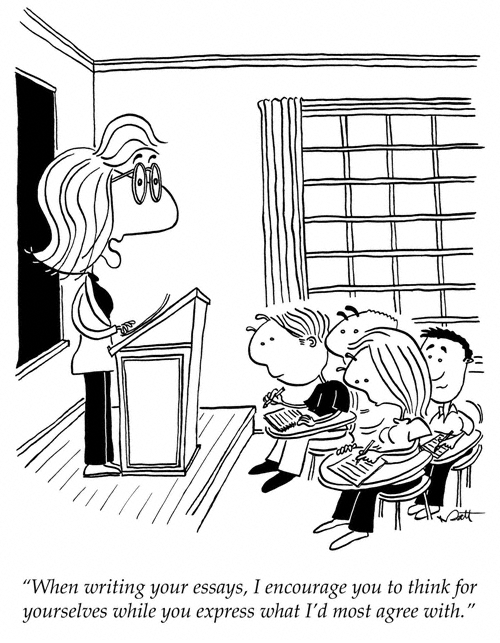Teach 'em a Lesson
Over the weekend I spent a few hours grading timed writes for a developmental composition class. I realized after the first few that these timed writes were really, really abysmal. "WTF?!" I shouted to the cat (who is on a diet and constantly begs for food) after an essay by one of my most thoughtful writers didn't get past her first paragraph and a half in the 90-minute exercise.
Again and again I saw the same problem. Despite lots of time spent in class developing ideas and learning techniques for communicating ideas clearly in writing, students were not writing with a sense of purpose. Their papers, at best, were a collection of loosely-related and poorly-integrated examples that were not used in service of anything.
What was especially interesting is that many students had a traditional thesis. My lesson learned? The form doesn't mean anything if there is no purpose behind it.
This brings me to today's November blogging challenge question: What is the most important ‘lesson’ you want to teach your students?
A lot comes to mind: as a writing instructor I want students to express themselves clearly in this medium. I see now, though, that if they don't have content to convey, all the form, style, and sentence-level skills won't add up to a burp in the face of a tornado. Knowing our purpose gives us power.
The students had known their potential topic before they sat down to write. As a class we walked through example-finding. But I forgot to draw out the students' innate need to establish a purpose for writing this assignment. I think next time, I'll go at it backwards: propose some topics and let the students establish a need to investigate them further in writing.
It'll turn out perfectly next time, right?

2 comments:
We are on the same path, Yolkster, both of us trying to figure out how to zig-zag between nurturing voice and teaching form. The traditional way worked for us when we were students, so it makes sense that we repeat what worked for us. So seeing past my conditioning has and continues to be a challenge. Grateful to be on the path with you.
zomg, you nailed it, E. By offering so much "support" and "guidance" (or even call it "scaffolding"), we're killing the students' agency. And they know it. So how do we provide just enough without too much? I'm guessing that it has to be more individual than classroom-based. . . . #frontloadingfailagain!
Post a Comment